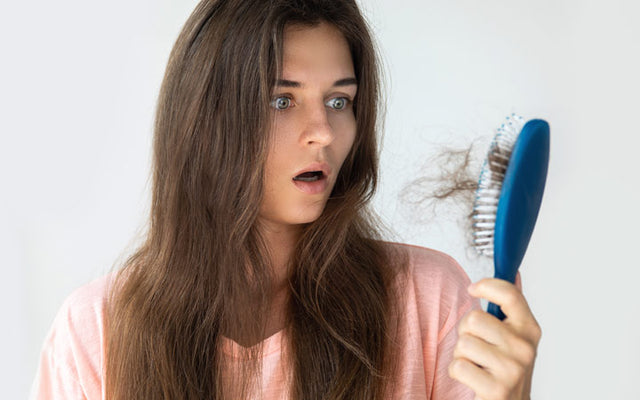Non-Surgical Hair Loss Solutions A Guide for Dubai Residents
Hair loss is a common concern affecting many individuals in Dubai, regardless of age or gender. While surgical interventions like hair transplants are popular, non-surgical solutions offer effective alternatives that are less invasive and often more accessible. This guide explores various non-surgical Hair Loss Treatments In Dubai solutions available to Dubai residents, detailing their benefits and how they work.
Understanding Non-Surgical Hair Loss Solutions
The Importance of Non-Surgical Options
Non-surgical hair loss solutions provide individuals with alternatives that avoid the complexities and recovery times associated with surgical procedures. These options often require less commitment and can be tailored to fit individual needs.

Factors Influencing Hair Loss
Before exploring non-surgical solutions, it's important to understand the factors contributing to hair loss. Common causes include:
Genetic Predisposition: Hereditary conditions such as androgenetic alopecia can lead to gradual hair thinning.
Hormonal Changes: Imbalances caused by stress, pregnancy, or thyroid disorders can trigger hair loss.
Nutritional Deficiencies: Lack of essential nutrients can weaken hair follicles.
Environmental Factors: Pollution, UV exposure, and climate conditions in Dubai can impact hair health.
Popular Non-Surgical Hair Loss Solutions
1. Topical Treatments
Minoxidil
Minoxidil is a widely used topical solution that promotes hair growth. Available over the counter, it is applied directly to the scalp and is suitable for both men and women. Regular use can stimulate hair follicles and increase blood flow to the scalp.
Hair Growth Shampoos and Conditioners
Many shampoos and conditioners are formulated with ingredients that support hair health. Look for products containing biotin, keratin, and natural extracts like saw palmetto or caffeine, which may help strengthen hair and promote growth.
2. Low-Level Laser Therapy (LLLT)
How It Works
Low-level laser therapy uses specific wavelengths of light to stimulate hair follicles and promote hair growth. This non-invasive treatment is often delivered through handheld devices or laser caps.
Benefits
LLLT is painless and requires no downtime, making it a convenient option for individuals looking to improve hair density. Many users report visible improvements in hair thickness and overall scalp health.
3. Platelet-Rich Plasma (PRP) Therapy
Overview of PRP Therapy
PRP therapy involves drawing a small amount of the patient’s blood, processing it to concentrate the platelets, and injecting the platelet-rich plasma into the scalp. The growth factors in PRP stimulate hair follicles, promoting hair regrowth.
Treatment Process
Consultation: An initial consultation assesses the individual’s hair loss condition and treatment goals.
Blood Draw and Preparation: A blood sample is taken and processed to isolate the platelets.
Injection: The PRP is injected into areas of thinning hair, with results typically noticeable within a few months.
4. Nutritional Supplements
Essential Nutrients for Hair Health
Incorporating specific vitamins and minerals into your diet can support hair growth. Key nutrients include:
Biotin: Often recommended for strengthening hair.
Zinc: Supports hair tissue growth and repair.
Vitamin D: Low levels of vitamin D have been linked to hair loss.
Hair Growth Supplements
Many supplements are available specifically formulated to support hair health. These products often contain a blend of vitamins, minerals, and herbal extracts that may promote hair growth.
5. Scalp Micropigmentation
What Is Scalp Micropigmentation?
Scalp micropigmentation (SMP) is a cosmetic tattooing technique that creates the illusion of fuller hair by depositing pigment into the scalp. This solution is particularly beneficial for those with thinning hair or bald spots.
Benefits of SMP
Immediate Results: SMP provides instant aesthetic improvement.
Low Maintenance: The effects can last for several years with minimal upkeep.
Lifestyle Factors to Support Hair Health
Healthy Diet
A balanced diet rich in proteins, vitamins, and minerals is crucial for hair health. Foods like fish, nuts, seeds, fruits, and vegetables can provide the nutrients needed to support hair growth.
Stress Management
Chronic stress can lead to hair loss. Incorporating relaxation techniques such as yoga, meditation, and exercise can improve overall well-being and may help mitigate hair loss.
Proper Hair Care
Gentle hair care practices can prevent further damage. Avoid harsh chemicals, limit heat styling, and use sulfate-free products to maintain healthy hair.
Conclusion
For Dubai residents experiencing hair loss, non-surgical solutions offer a range of effective options that are accessible and less invasive than surgical procedures. From topical treatments and laser therapy to nutritional support and scalp micropigmentation, individuals can find a solution that fits their lifestyle and needs. By exploring these options and maintaining a healthy lifestyle, residents can take proactive steps towards achieving fuller, healthier hair.